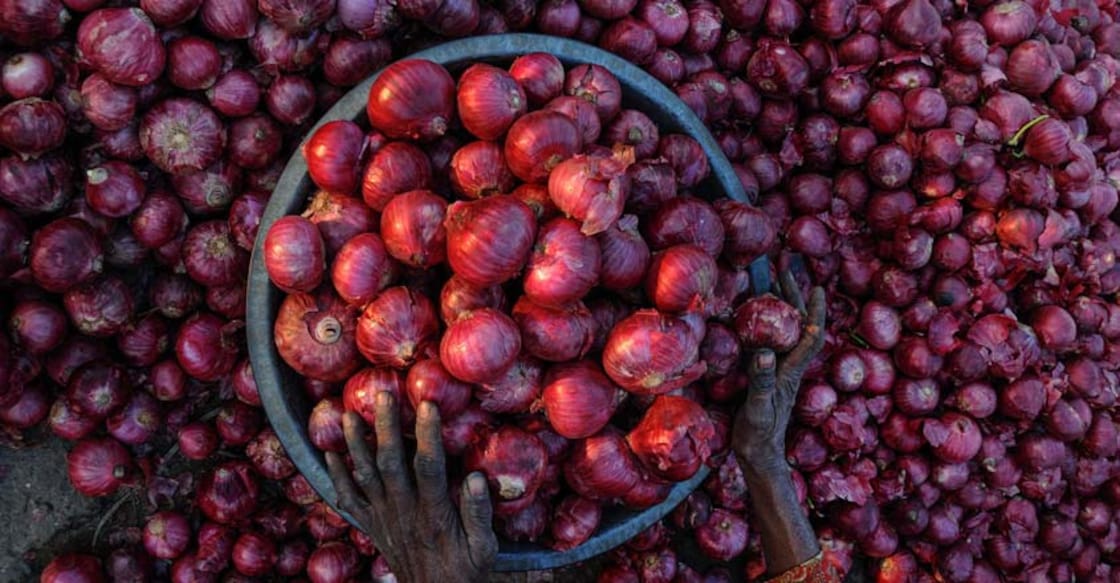Can Keralites do without adding onions or shallots in their dishes?

Mail This Article
Shallots and onions have now become one of the priciest items in the country. Experts say that the price of the onions is likely to further go up in December. The price had reached a record Rs 170 per kilogram in December last year too. Families complain that the exorbitant rates of the good old onions have shattered their monthly budget. Meanwhile, the opposition parties have already begun ‘raising their voices’ against this.
Until a few weeks ago, a kilogram of onion had cost only Rs 30. However, now, the wholesale rate of onion in all the major markets in South India has crossed Rs 80. It means that the shallots or onions would be sold for Rs 90 in small shops or vegetable vendors. The government would open their eyes only when the onion prices cross a whopping Rs 100. I can’t help but wonder whether Indian government has no idea about the farming season of onion. Can’t the weather forecasting agencies help the agriculture in this country? There won’t be a proper answer if you ask whether the soaring prices could be controlled in the next few weeks by taking proper measures and action.
It would be particularly difficult for the North Indians, who like to enjoy the tasty onions or shallot parathas or to bite a few slices of onion with every meal.

However, has anyone wondered the position of onion in the culinary history of South India, especially Kerala? Shallots are believed to be one of the first cultivated vegetables in the world. Historians say that shallots were grown in some of the central Asian countries including India as long as five thousand years ago. Though onions and shallots have been extremely popular in the North Indian states, Keralites have begun using them in our dishes only since the beginning of this century. During the post independence times, the onions were known as Bambai ulli in Kerala, as most of it came from Bombay. Many ancient and aristocratic Hindu, Christian and Muslim families vow that they haven’t seen onions in their traditional dishes.
In fact, shallots aren’t used in any other dishes, except sambar, in a traditional sadya. Interestingly, sambar doesn’t belong to the traditional cuisine of Kerala. Noted culinary experts point out that shallots or onions aren’t used in authentic sadya dishes like pachadi, kichadi, avial, olan, kalan, pulissery, kootu curry, erissery, thoran, mezhukkupuratty, uppilittathu or brined veggies, pickles or puli inji. Apart from a few shallots, onions aren’t added in traditional Christian dishes like tapioca and pidi or chicken curry and liver roast. The same could be said about the delicious dishes that were cooked in the Muslim households. However, today, shallots and onions have taken a major place in the dishes that are served in a regular restaurant or a household in Kerala.
A seasoned chef or cook would try to avoid shallots or onions in their meat curries because onions would release water into the gravy. Many well known biryani makers would only add fried onions in their biryanis. They say that onions would give a ‘watery’ flavour to the meat. So, how do you think shallots and onions have taken over the kitchens in Kerala. Keralites are game to try out new things and they would accept and adopt anything if they think it suits them. Though we were sceptical in the beginning, Keralites have conditioned their palettes to the unique acidic flavour of shallots. The truth is that Keralites wouldn’t miss anything even if they decide to give up onions or shallots as they aren’t required in the traditional dishes of Kerala. However, onions are essential in most of the North Indian dishes. It would definitely be easier for Keralites to give up shallots and onions at least until their prices drop.

